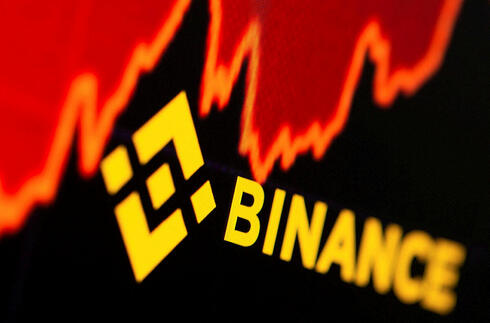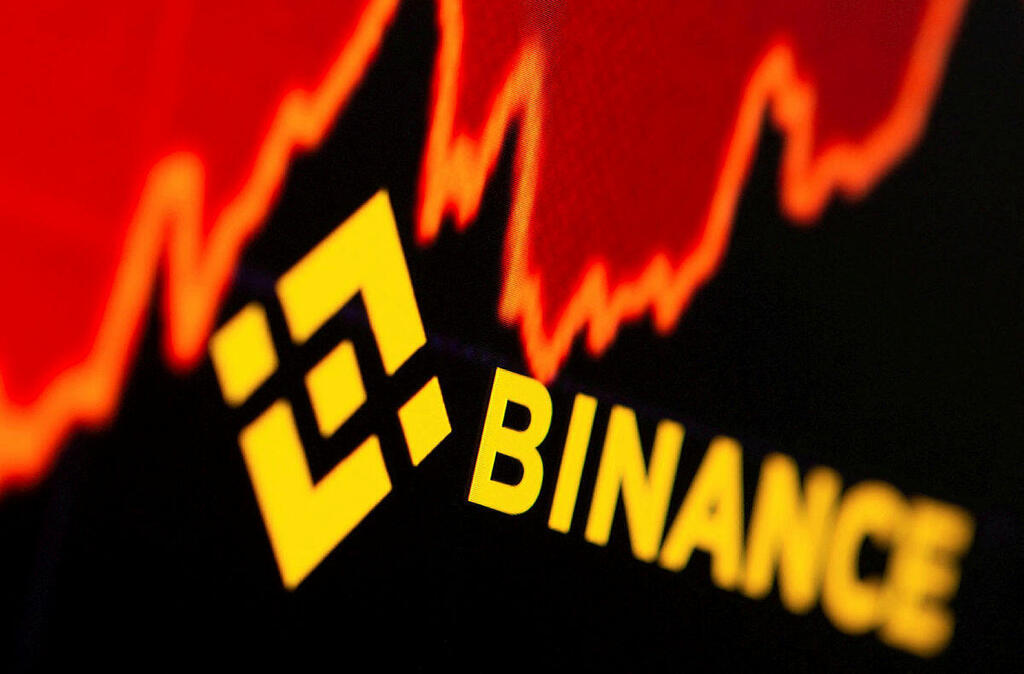
"Since the hack I've become completely paranoid": The story of how one crypto trader lost $70,000 on Binance
Trader doomxbt’s Binance account was drained, with little response or help from the platform. The price of Bitcoin is soaring, but the world's crypto exchanges remain unregulated, and platforms like Binance continue to place full responsibility for loss or theft on users
With Bitcoin registering all-time highs, even peaking recently at over $70,000, and interest in the digital asset growing, one important thing is going unnoticed: nothing has changed in the crypto market. What made it dangerous five years ago or two years ago remains the case today. In January, Bitcoin ETFs began trading, and the market seemed to possess a new aura of respectability and safety.
However, the actors, motivations, and products in the crypto market have remained mostly the same, with many big players collapsing, leading to losses of billions of dollars for small and large investors alike. Such is the story of the trader known as doomxbt, an Israeli living in Germany, with an account on the world's largest crypto exchange — Binance.
Doomxbt held $70,000 worth in Tether (USDT) in his Binance account, a crypto exchange that has gained momentum for years as a safe platform, holding around $65 billion in digital asset value. "I need an exchange with high liquidity," said doomxbt, "nothing else can compare."
On February 29th, he started receiving buying and selling notifications on his account, even though he wasn’t carrying them out. He did the right thing by reaching out to a representative at Binance, but to his dismay, there was no shared sense of urgency: "I was stressed. I sent a message in the chat and told the representative who quickly responded that someone was trading in my account and it wasn't me." They spoke for a long time, including to carry out identity verification via video and a transfer to a secondary service representative, a conversation that ended only when all assets were removed from doomxbt's account and it was no longer relevant. Later, Binance froze the account, and the case was handed over to German law enforcement. He had no options left to reclaim his money. "I'm not waiting for law enforcement or Binance," he said.
Doomxbt sees himself as relatively technologically savvy, and although he has some regrets in hindsight, his security measures were higher than most and he “felt that such a thing would never happen to [him]." He said that an investigation he conducted with Binance did not provide an answer on how the breach occurred. "Since the hack, I've become completely paranoid. I’ve changed my phone and computer, and I'm afraid to touch things that aren't mine. I still don't know how it happened. I wonder if it was through connecting the Wi-Fi network; we bought a robot vacuum cleaner connected to the Wi-Fi, and I worry that that’s where it came from."
Binance CEO Richard Teng commented on the case on X (formerly Twitter), and acknowledged that this was a serious matter and pledged that the company’s security team would conduct a full investigation. Will such an investigation end with the return of the funds? It's hard to believe. "Despite all of the exposure on Twitter, and the fact that even the CEO wrote to me, no one expressed regret or admitted failure on their part. They replaced my security key, but in any other exchange when such a thing happens the account is frozen for withdrawals - not at Binance. I'll definitely stay with them because I have no choice, but I'll need to investigate how to protect the account."
"In recent years, we have witnessed sophisticated attacks targeting users holding funds in centralized exchanges," says Snir Levi, founder of research company Xplorisk, who estimates that doomxbt's devices were infected with malware. "Hackers gain access to the client's device through malicious software or impersonation of support personnel who require remote access to the device for urgent maintenance. Once access to the device is obtained, they can access the email address and two-step verification. In such cases, standard protections don’t work, and the victim is entirely dependent on the exchange's ability to detect those anomalies."
The evolving digital world poses significant risks in managing financial accounts, hence various financial systems are expected to minimize cyber risks as much as possible and deal with them in real-time and post-incident. However, there is a difference between the traditional financial system that is subject to strict supervision and standardization, while the crypto ecosystem is not. One provides security, the other doesn’t; one is committed, the other really isn’t.
Doomxbt and other Binance users should know this. Binance's terms of use limit the company's liability towards its users as much as possible. Customers should also be aware that Binance is not obligated to set up freeze mechanisms that can immediately freeze an account when the first suspicious activity occurs - mechanisms which exist in other crypto exchanges - and they also should know that there is no insurance for deposits on the platform.
But it's difficult to know and control everything, especially in complex, large, and sensitive systems. That's precisely why strict regulation has been imposed in the traditional financial market, transferring responsibility to service providers and even regulators themselves. But Binance is unregulated, and thus enjoys the best of both worlds: shifting full responsibility to customers with no obligation for accountability in case something goes wrong.
Binance can do this because of the original design of the crypto market, which was initially intended to provide an alternative to traditional financial institutions, even though it offers services similar in nature. This is because Binance and companies like it have been working for a decade to prevent supervision and standardization that international regulators have been trying to impose on them. The fact that the price of Bitcoin and other currencies are reaching new highs and institutional players can buy ETFs isn’t due to any development in the market, which remains exactly as it was three years ago, when it served as a convenient forum for scammers and large-scale fraudsters.
When the crypto market was founded, its basic principles were decentralization and encryption - elements meant to enable breaking away from traditional financial systems and the evils associated with them, including state and bank control over money supply and prices. The new system was intended to transfer responsibility from centralized entities to individuals, so that each individual would be solely responsible for managing their finances — without guarantees, without assurances, and without trust. But the problem was twofold: rigidity and slowness. Blockchain, the technology on which the market relies, is not efficient enough to support fast, intensive economic activity used by hundreds of millions of users. It’s also an inaccessible technology that requires a high level of skill from the general public who don't have the time or access to information to specialize in it.
To overcome these difficulties, centralized trading platforms were established to allow users to make transactions quickly above the blockchain layers. By creating this upper layer, the platforms themselves became vulnerable, because on the one hand they removed all the inherent security to the market, and on the other hand they placed them on regular platforms, without regulation that traditional platforms require. Users were left exposed from all sides.
Though the risk is known, simplicity prevails, and users continue to flock to centralized platforms. Has anything changed in Binance with the crypto market experiencing renewed interest? Yes, the company agreed to pay $4.3 billion to US authorities for its failure to prevent money laundering or funding terrorism. Yet automatic withdrawal freezes when there is suspicion of a breach in a private customer's account still doesn’t exist on the platform.
First published: 14:22, 20.03.24














